Future editions of the NYrobi BookFest may hold greater promise for the new generation of writers still lingering in the shadows, waiting to be seen.
By Frank Njugi
In her book, A Room of One’s Own, published in 1929, Virginia Woolf—considered one of the most influential modernist authors of the 20th century—wrote about how literature is strewn with the wreckage of those who have minded, beyond reason, the opinion of others.
In the modern era, with the democratisation of publishing and the ease of producing books, literature over the past decade has increasingly become a mirror reflecting the wreckage of those who, beyond reason, have tethered their identities to the relentless task of capturing both personal and impersonal experience.
This very reality formed the premise for the 2025 edition of the NYrobi BookFest, held between 11th and 13th April in Nairobi, Kenya. Now in its fourth edition, the festival set out to explore how contemporary Kenyan writing in recent years has grappled with the burden of reflecting both personal and impersonal experience in a literary industry oversaturated with voices due to the rise in self-publishing.
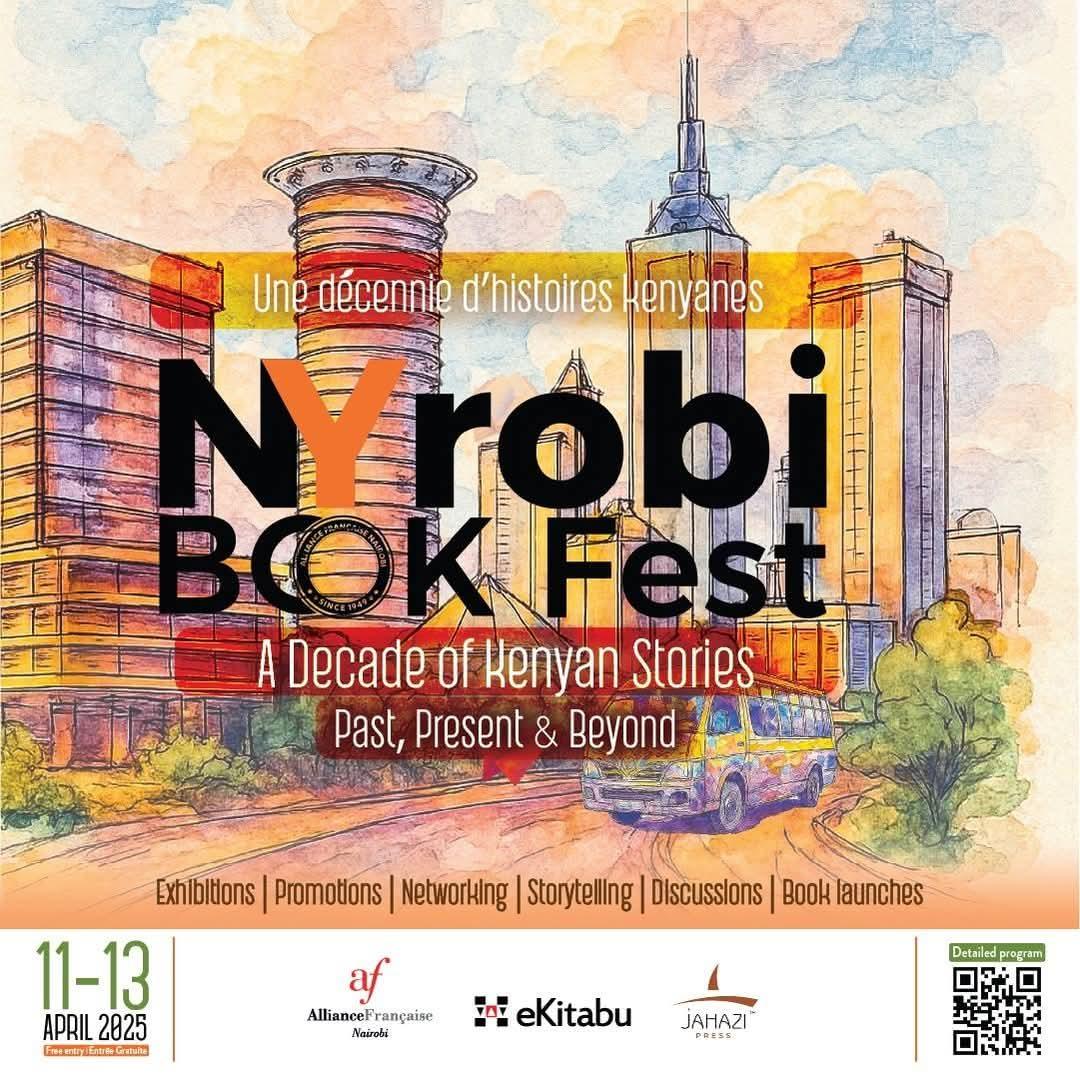
The theme of the 2025 edition of the NYrobi BookFest was dubbed “A Decade of Kenyan Stories: Past, Present & Beyond”. This theme was thoughtfully explored through the lens of renowned guest writers such as 2003 Caine Prize winner, Yvonne Adhiambo Owuor; Lolwe founder, Troy Onyango; 2018 Caine Prize winner, Makena Onjerika; 2023 Graywolf African Fiction Prize winner, Kiprop Kimutai; former Kwani? editor, Billy Kahora; writer and translator, Kabubu Mutua; poet and writer, Tony Mochama, among others who served as panellists, offering layered insights drawn from their experiences and literary journeys.
The three-day literary soirée kicked off on Friday the 11th with keynote addresses from Billy Kahora and Alliance Française Nairobi director, Denis Charles Courdent, the festival’s primary organisers, alongside E-Kitabu founder, Will Clurman, representing the event’s key partner organisers. In their addresses, the three noted that the aim of the fourth edition of the NYrobi BookFest was to celebrate young voices that define Kenyan writing: the triumphs, the struggles, and the ever-expanding landscape of imagination.
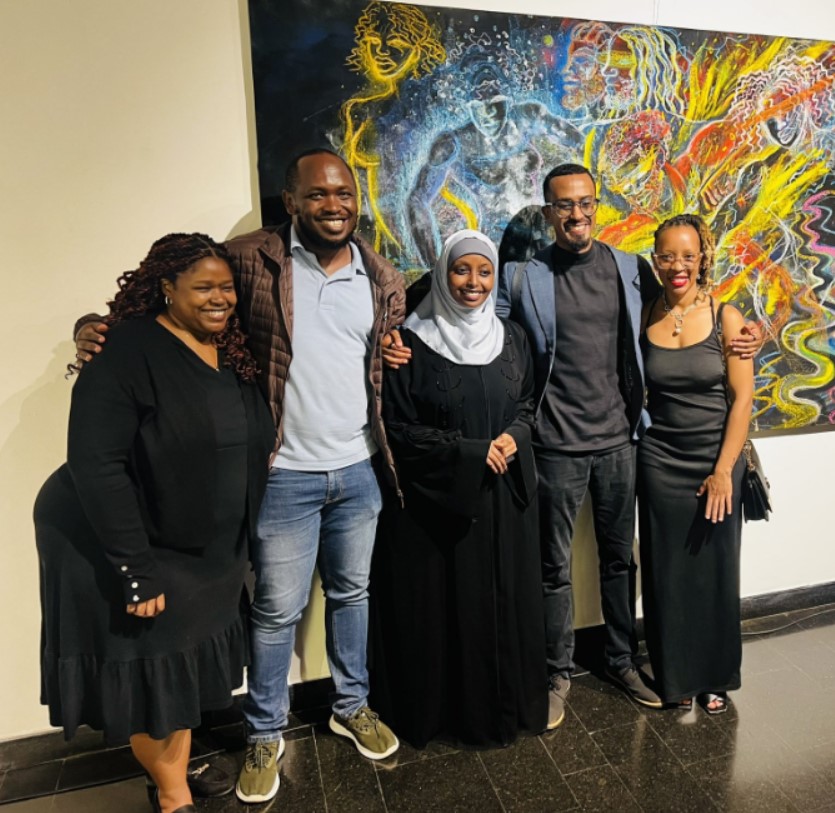
Exhibiting this year were over 20 bookshops, authors, publishers, and content creators, with panel discussions held simultaneously in two venues at the Alliance Française – Nairobi.
Following the opening ceremony, the first panel session of the festival, presided over by Kenyan journalist and writer Mohamed Amin Abdishukri, featured contributors to Jahazi Press’ 2024 anthology, Let Us Conspire and Other Stories, edited by Billy Kahora and including 2023 Commonwealth Short Story Prize-shortlisted writer Buke Abduba. The discussion delved into the narratives Kenyan writers seek to tell, the inspirations behind them, and their deep-rooted connections to the Kenyan reality.
This session provided a fitting prelude to the panels held on the second day of the festival, Saturday 12th April, whose main attraction was a conversation on contemporary Kenyan short stories featuring the authors of two acclaimed recent anthologies—Half Portraits Under Water by Dennis Mugaa and For What Are Butterflies Without Their Wings by Troy Onyango—the latter of whom also conducted a workshop alongside Billy Kahora on the essential elements of short story writing.
Another standout event on the second day was the book launch by Godfrey Mwampembwa, better known as Gado—the most syndicated political cartoonist in East and Central Africa. The Tanzanian-born animator and comics artist unveiled Hustlers Vs GenZ’s, a compelling collection of his editorial cartoons published in The Standard and The Continent between 2017 and 2025.
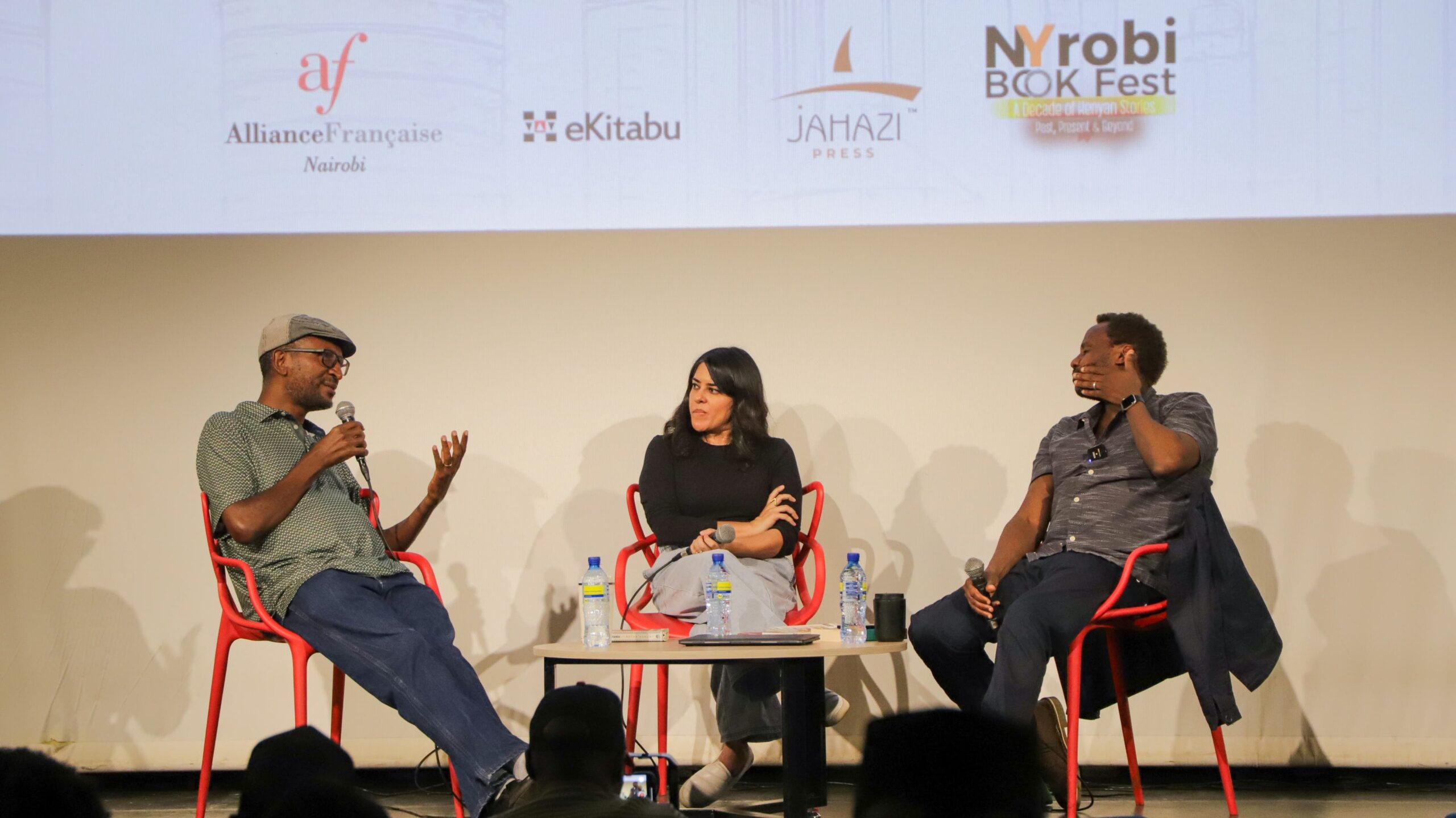
In his session, Gado offered thoughtful reflections on how discussions around journalism often centre solely on writers, overlooking the critical role cartoonists play in shaping the broader narrative. He urged the audience to reconsider the popular saying that the pen is mightier than the sword—reminding them that a cartoonist, with just a few strokes, can deliver a punch that resonates just as powerfully.
In the evening, 2018 Caine Prize winner Makena Onjerika took part in a conversation on Nairobi’s vibrant culture, crime literature, and the city’s noir essence in relation to the book Nairobi Noir, which is part of the Akashic Noir series. Through Nairobi Noir and other works, the panellists alongside her—Peter Kimani and Stanley Gazemba—unravelled the stories that shape and define Kenya’s capital. The session was moderated by Wendy Njoroge, the new publisher for Narrative Landscape Press East Africa.
At the same time, Tony Mochama’s session The Mystique of the Critique was underway. The celebrated poet, writer, and critic offered a critique on the unchecked celebration of self-publishing, arguing that while it has undeniably democratised literature, it has also opened the floodgates to subpar writing—pointing out that the lack of editorial rigour isn’t just a self-publishing problem, but a failure shared by those publishing houses that too often prioritise profit over literary integrity.
The second day concluded with a performance by Too Early For Birds co-founder, Bryan Ngartia, who orally narrated the story of Kibara wa Mararo, also known as General Chui—one of the bravest and most tactically brilliant leaders in the Kenya Land & Freedom Army (popularly known as the Mau Mau) uprising of the 1950s.
The festival came to a close on Sunday the 13th with notable sessions, including the book launch of Love, Marry, Kill, the fifth novel by Kenyan-based South African journalist and novelist Zukiswa Wanner. Moderated by Kui Kabala, creator of the Nairobi Book Love podcast, the session revealed the book to be a tale of naïveté, love lost, and tragic consequences.
There was also a compelling conversation, moderated by Billy Kahora, with authors Iman Verjee and Peter Kimani, dubbed 3 Degrees of Kenyan Separation. The panellists traced the interconnected layers of contemporary Kenyan literature, reflecting on how narratives shape Kenyan stories, cultures, and identities through close yet distinct influences—bridging the personal, the communal, and the global within just three degrees of separation.
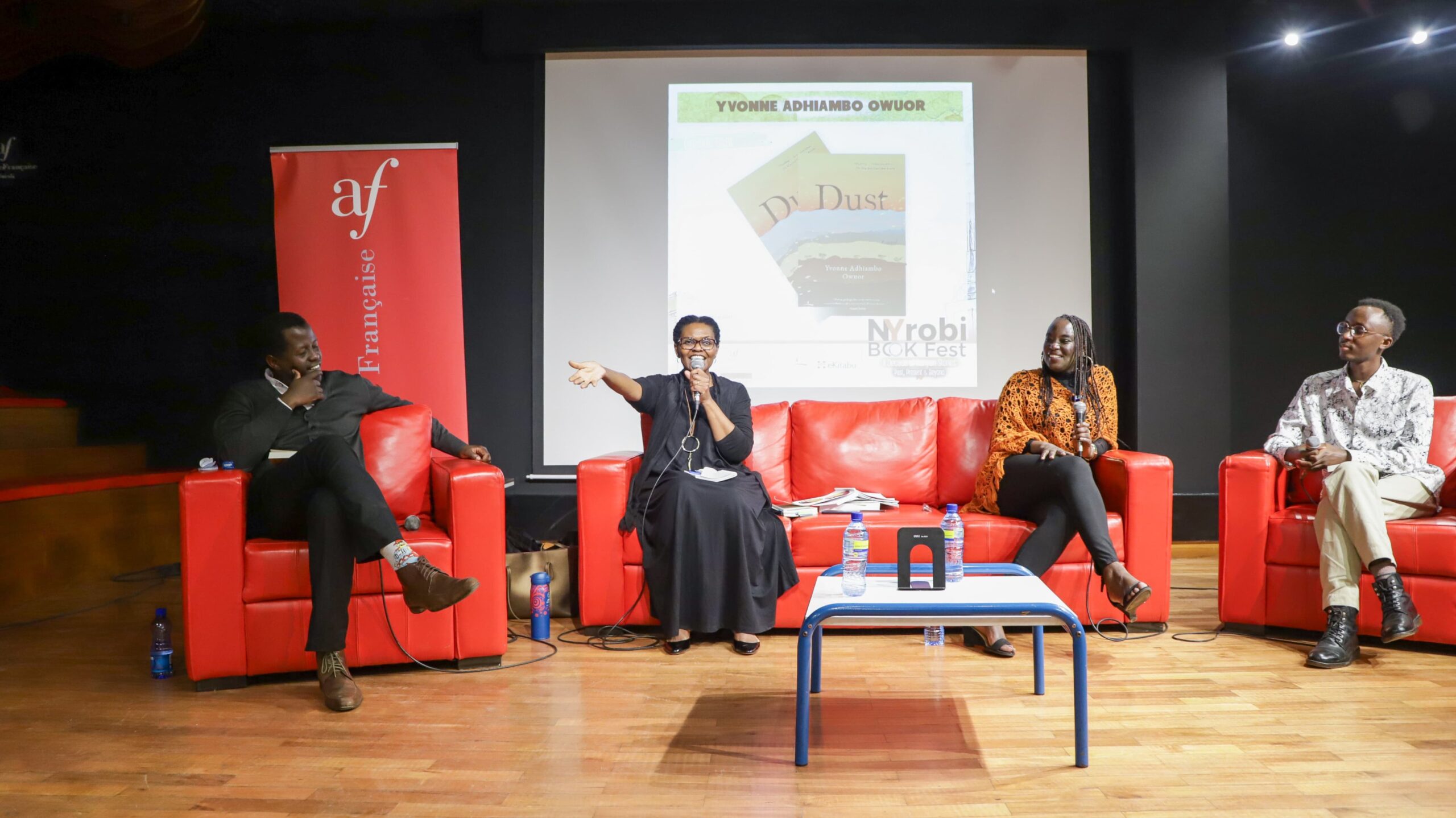
The final panel session proved to be its finest yet—a powerful intergenerational conversation featuring the renowned Yvonne Adhiambo Owuor, alongside Joe Kobuthi, a socio-political and literary commentator, and Kabubu Mutua, a rising writer shortlisted for the Peters Fraser and Dunlop Queer Fiction Prize. Together, they explored how shifting social and political climates have shaped, challenged, and redefined Kenyan storytelling across generations.
Kabubu Mutua, in a striking display of intellect and literary prowess, held his own among his more seasoned contemporaries, affirming that the emerging generation of Kenyan writers not only deserves greater visibility but is more than capable of shaping the country’s literary future with confidence and depth.
His presence on that stage prompted a necessary reflection on how, despite the NYrobi BookFest’s aim to celebrate the new generation of Kenyan writers, it may have overlooked a vital opportunity to spotlight a broader range of emerging voices in their early and mid-20s—voices that are indispensable to any authentic dialogue about the present and future of Kenya’s literary landscape.
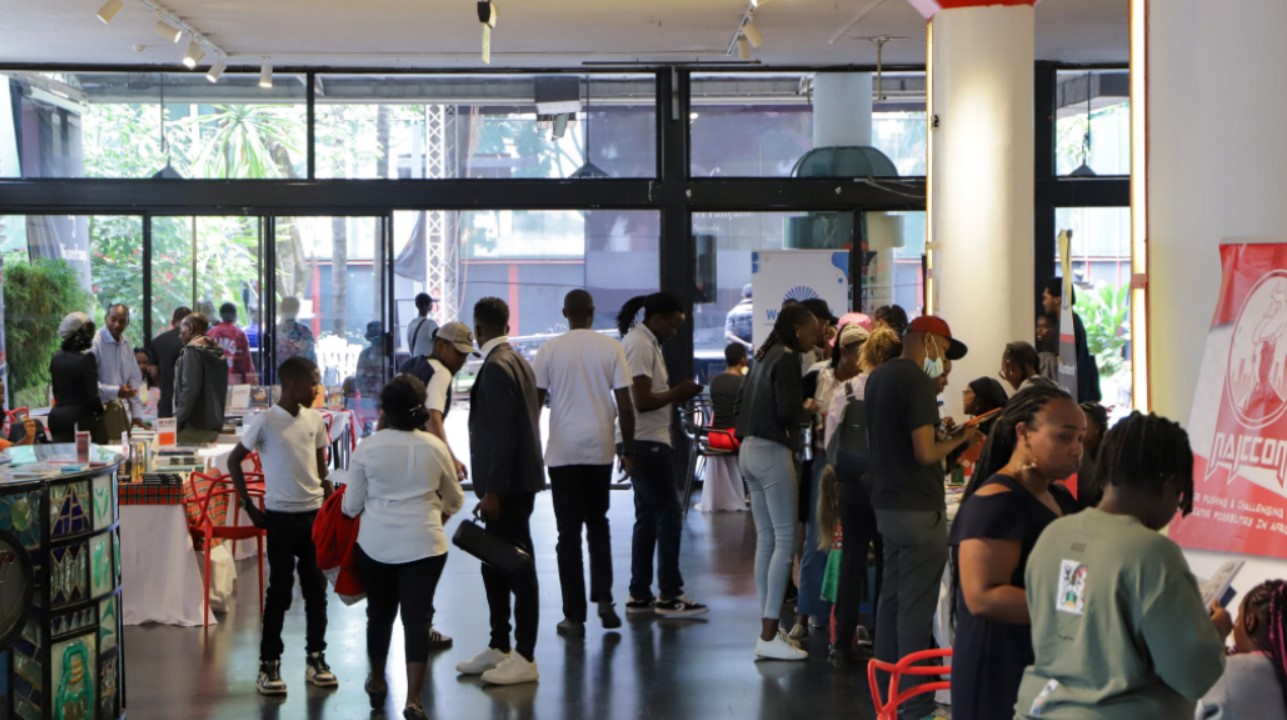
Kenya’s literary scene is in a moment of transition, with self-publishing giving rise to a new bubble of literati who, despite often bypassing traditional standards of quality and delivering a glut of poorly edited and hastily written works, are increasingly becoming part of the canon. This is alongside young writers whose voices, shaped by distinct contemporary experiences, are carving out, or will carve, narratives that may well define the country’s collective story for the world. The NYrobi BookFest 2025 set out to showcase both.
While the latter may have largely been flaunted at length in contrast to the former, it is encouraging that curators are beginning to acknowledge the broader transition underway, suggesting that future editions of the NYrobi BookFest may hold greater promise for the new generation of writers still lingering in the shadows, waiting to be seen.
Frank Njugi is an Award-winning Kenyan Writer, Culture journalist and Critic who has written on the East African and African culture scene for platforms such as Debunk Media, Republic Journal, Sinema Focus, Culture Africa, Drummr Africa, The Elephant, Wakilisha Africa, The Moveee, Africa in Dialogue, Afrocritik and others. He tweets as @franknjugi.




